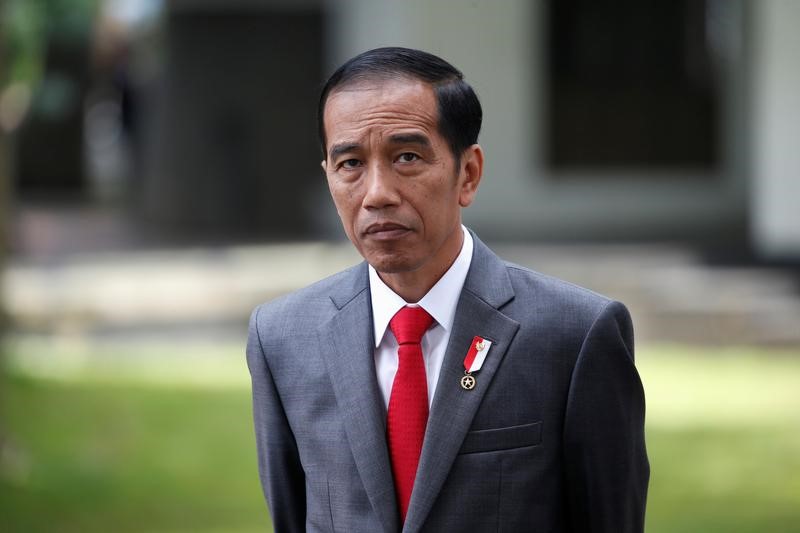By Gayatri Suroyo and Hidayat Setiaji
JAKARTA (Reuters) – Indonesian President Joko Widodo has signed a new regulation giving tax authorities access to information on accounts held at financial institutions, including banks.
The regulation was signed last week as part of Indonesia’s pledge to join the Automatic Exchange of Information (AEOI) initiative led by the Organization for Economic Cooperation and Development, a rich-country think-tank.
The government considered it “very urgent” for the tax office to get wider access to financial data, the regulation said. Failure to meet AEOI commitments could lead to significant losses and disrupt stability in Southeast Asia’s largest economy, it said.
The president can issue a government regulation in times of emergency. It becomes effective immediately, although parliament must debate and vote on the regulation during its next sitting, which starts on Thursday, to turn it into law. If parliament votes it down, the regulation is repealed.
The regulation calls on banks, insurance companies and other financial institutions to report client information – including cash balances and financial gains from assets – as required under international standards, and for the tax office to share the information with authorities in other countries.
The tax office can also ask financial institutions to share information for tax collection purposes.
Previously, under laws protecting banks and other financial institutions, the tax office had to file a request to the Financial Services Authority (OJK) to get access to a taxpayer’s accounts, and only for the purpose of an investigation.
The process could take more than six months and in some cases allow people to cover up possible evidence of tax avoidance, tax officers have said.
Bahana Sekuritas said there was a risk the move “could hamper the economy” if people pull money out of financial firms, although Head of Research Harry Su said tax reform would benefit Indonesia over the longer term.
Bank Central Asia (BCA) Chief Economist David Sumual said the new regulation would probably not have a big impact on banking clients.
“If this opening up only happens in Indonesia, then we are at risk. But because this is affecting many other countries, I don’t think it will affect us,” said Achmad Baiquni, President Director of Bank Negara Indonesia <BBNI.JK>, adding that his bank is preparing to educate clients about the change.
The new regulation follows an amnesty campaign encouraging taxpayers to declare hidden wealth. Almost 1 million taxpayers joined the program, declaring 4,881 trillion rupiah ($366.8 billion) of previously concealed assets.
“We were not ready before the tax amnesty. But now that we’ve had the amnesty, we are,” BCA’s Sumual said.
Widodo’s flagship nine-month amnesty ended in March. It generated 135 trillion rupiah ($10.16 billion) of additional tax revenue to the government, equivalent to 1.08 percent of GDP.
The largest sums amnesty participants had concealed offshore were held in Singapore, the British Virgin Islands, Hong Kong and the Cayman Islands. All of those jurisdictions are signatories to the AEOI, along with about 100 others.
(Reporting by Gayatri Suroyo and Hidayat Setiaji; Editing by Catherine Evans and Eric Meijer)





Reader Interactions